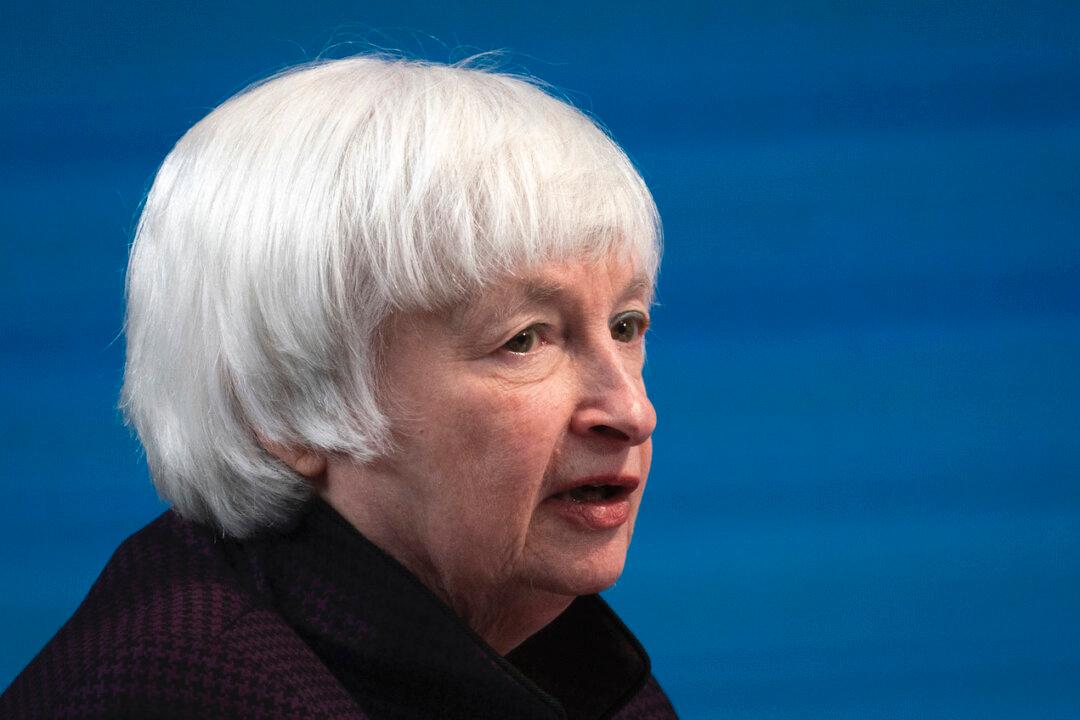Treasury Secretary Janet Yellen said the Biden administration is working with other like-minded world leaders to introduce a global minimum tax rate on companies.
In a virtual speech delivered to the think tank Chicago Council on Global Affairs, Yellen deplored what she said has been a “race to the bottom” over the past 30 years, in which countries have sought to reduce corporate tax rates to incentivize multinational businesses, including U.S.-owned businesses, to offset costs via accounting moves that transfer their revenues to countries with lower corporate taxes.




